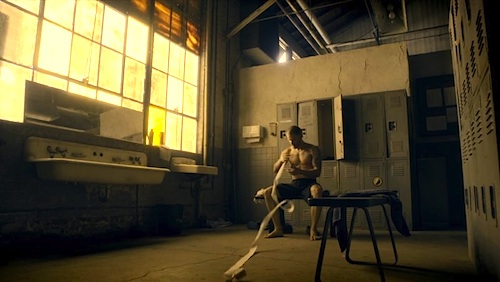By Joe Bendel. Anyone who still held to the illusion that the People’s Republic of China was a classless society will stand corrected by the extreme economic stratification of the nation’s rail travel. There is a very definite class hierarchy and the respective accommodations vary accordingly. The train is kind of/sort of a metaphor, but it is also a rather cinematic setting for J.P. Sniadecki’s observational documentary The Iron Ministry, which screens during the 52nd New York Film Festival.
In many ways, Ministry functions as a perfect companion film to Lixin Fan’s Last Train Home, but it is not nearly as depressing. Granted, there are literal throngs of people crammed into the lowest class compartments, many of whom are likely facing some pretty grim circumstances. The conductors also uniformly seem to be officious jerks. However, there is a whole lot of life going on throughout the trains Sniadecki filmed.
In fact, some of the most fun seems to be going on where the lower middle class meets the upper rabble. For a fly-on-the-wall ethnographic film, Iron is surprisingly funny, especially the devilish kid cracking morbid jokes about the government’s population control policies. If he is the future, the Party is in trouble.

Frankly, it is hard to say whether the film inspires optimism or not. In one scene, an informal group of passengers start to criticize the corruption and control of the Communist government only to somewhat walk it back shortly later and then creep it forward a little. At least, Sniadecki captures a sense of the country’s cultural and religious diversity, broadening viewers’ perspective in small but telling ways.
Filmed on a fleet of trains over a three year period, Iron is an immersive sensory experience, but in this case that is not code for dull and depressing. It is a rather sly film that earns kudos for its correct Queen’s English usage of the word “inflammable” in the subtitles. The Mandarin speaking Sniadecki also deserves credit for getting bounced out of the upper class carriages. Livelier than you would expect, The Iron Ministry is recommended for anyone who wants to experience a slightly claustrophobic transcontinental Chinese rail journey from the comfort of the Upper Westside when it screens this Sunday (10/5) at the Gilman, as part of this year’s NYFF.
LFM GRADE: B+
Posted on October 4th, 2014 at 3:36pm.




